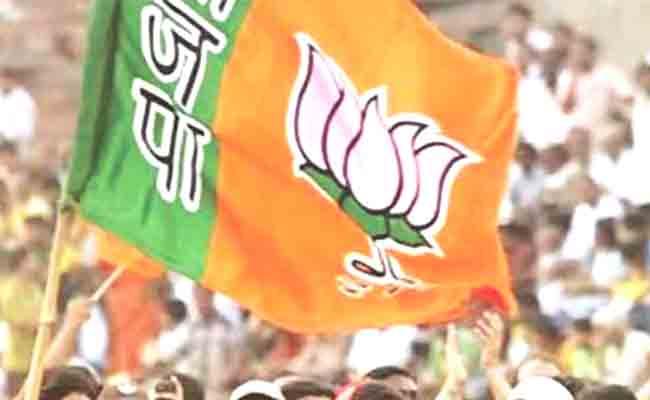BJP in Punjab Assembly Elections with ‘Eleven Sankalp’

By Jaspreet Kaur
The atmosphere for the current Punjab Assembly elections to be held on February 20 has completely burned out. Every political party is trying to win the hearts of the voters in Punjab. While the traditional parties are trying their luck in Punjab, the AamAadmi Party (AAP) is also in full swing. The BJP, which has twice won a majority in the Centre, is also in the fray this time with its new allies. Although the people of Punjab and other states have been struggling for a year and a half over the agriculture bills passed by the Modi government in September 2020, which has led to opposition toward BJP. Many disgruntled leaders from other parties, singers, Punjabi actors, players, and celebrities have joined the BJP during the election season in Punjab. With the election atmosphere heating up, the BJP has started its election campaign in Punjab with full force. However, Prime Minister Modi’s recent rally in Punjab has failed miserably due to farmer’s protests and inclement weather.
On February 8, PM Modi held the first virtual election meeting with the workers and candidates of Ludhiana and Fatehgarh Sahib Constituencies, during which he promised to, create a ‘Nawa Punjab’ with the BJP and its allies in a ‘double engine’ government. PM made a promise for the one billion to be invested by the NDA in the infrastructure of the border state and claimed that their alliance is only a viable alternative as well as must for the purpose of AtmanirbharBharar.In the current Assembly elections, the BJP is in the fray with two new allies, the PLC and the Akali Dal United, leaving behind its old ally Shiromani Akali Dal (Badal). The Punjab Lok Congress is being led by former Punjab CM Capt. Amarinder Singh and the Akali Dal-United is being led by Sukhdev Singh Dhindsa who has split from the Shiromani Akali Dal Badal.
Last week, the BJP along with its allies released a detailed manifesto for the Punjab Assembly elections.In addition, on February 8, the leaders of the three partners issued a letter entitled eleven -points Resolutions. An 11-points ‘Sankalp’ (Commitments or pledge) was released by BJP and its alliance partners PLC and SAD (Sanyukt) to seek to form government in Punjab after assembly election. The Sanklap was released by the BJP Punjab; Punjab Election in-charge and Union Minister Gajendra Singh Shekhawat, BJP leader Harjeet Singh Grewal and SAD (Sanyukt) chief Sukhdev Singh Dhindsa and claimed that the eleven promises will be implemented in letter and spirit within two years. Especially for the rural areas of the state and promised for the complete debt waiver for the farmers with less than five acres of landholding, guaranteed minimum support price for the fruits, vegetables, oilseeds and pulse; special allocation of 5.000 crore for the crop diversification; same amount for the sustainable agriculture and organic farming; 300 units of free power to each household; fast track courts for sacrilege incidents; 33 percent reservation for women in police force; each village have AarogyaKendras (dispensaries). The document also promised for the empowerment of women, SC’s and another backward section by providing subsidies and loans to start business in dairy farming, poultry farming and beekeeping. It also promised for the Prime Minister Employment Generation Programme to provide agro-based industries in the countryside areas and promotion of support in the villages of Punjab.
The BJP has so far contested the assembly elections in Punjab with the Shiromani Akali Dal being Badalally and the BJP-Akali alliance was the oldest alliance in Punjab. The Akali Dal had disassociated itself from the BJP during the ongoing tussle over agriculture bills last year.
If we make a cursory study of the electoral performance of BJP as so far, then in the 1997 Assembly elections, the BJPwon 18 seats, while in the 2002 elections, the alliance lost and the BJP won only three seats. The best performance of the BJP in Punjab so far has been in the 2007 elections in which it won the highest number of 19 seats ever. In 2012, it dropped to twelve. In the 2017 Assembly elections, the Akali Dal-BJP alliance lost badly due to its poor performance of governance in the last ten years and sacrilege incidents and the BJP secured only three seats.
This is a new experiment for the BJP in Punjab. This is the first time that the BJP is fielding such a large number of candidates in Punjab. BJP is contesting from this alliance for 65 seats out of total of 117 seats. Secondly, after a long since normalcy prevails in the state after the terrorism era, it is contesting elections in Punjab without its old electoral ally Shiromani Akali Dal Badal. The BJP has been traditionally considered as a party of urban Hindus. Around 95 percent of its party activists were Hindus. An analysis of Assembly election results between 1967 and 2017 shows that the BJP has its presence in urban and semi-urban constituencies. From the eleven-point resolution issued by the BJP and its allies, it seems that this time the BJP is trying to reach out to the voters living in the rural areas of Punjab and especially trying to attract the farmers by focusing the agriculture. BJP is trying to use the current Assembly elections as an opportunity to expand its political ground and percentage of vote share in Punjab on its own strength.
The author is a Research Scholar, from Punjabi University, Patiala, and is associated with Peoples Pulse, Research Organization on Electoral politics. She can be reached at peoplespulse. hyd @ gmail.com





